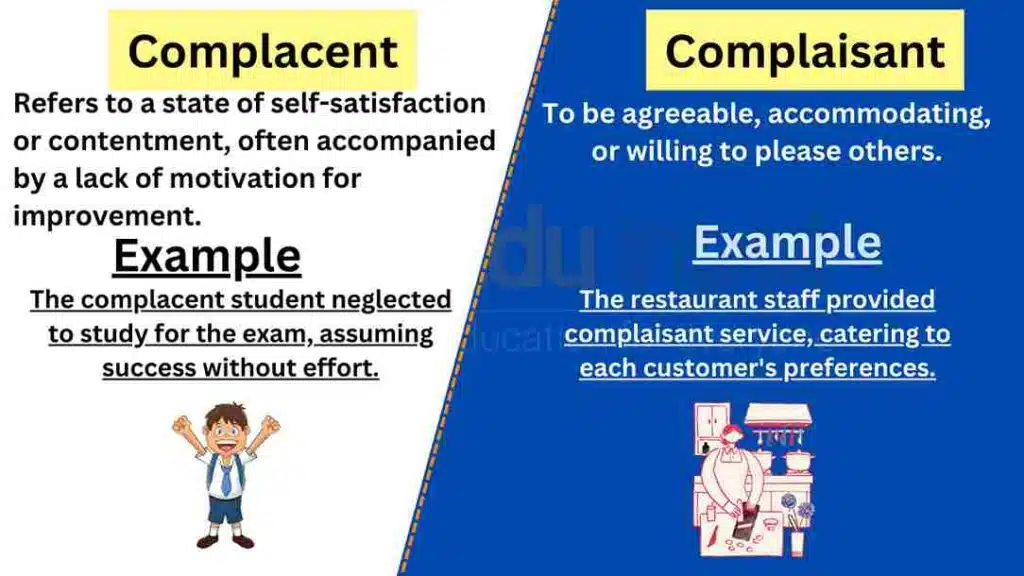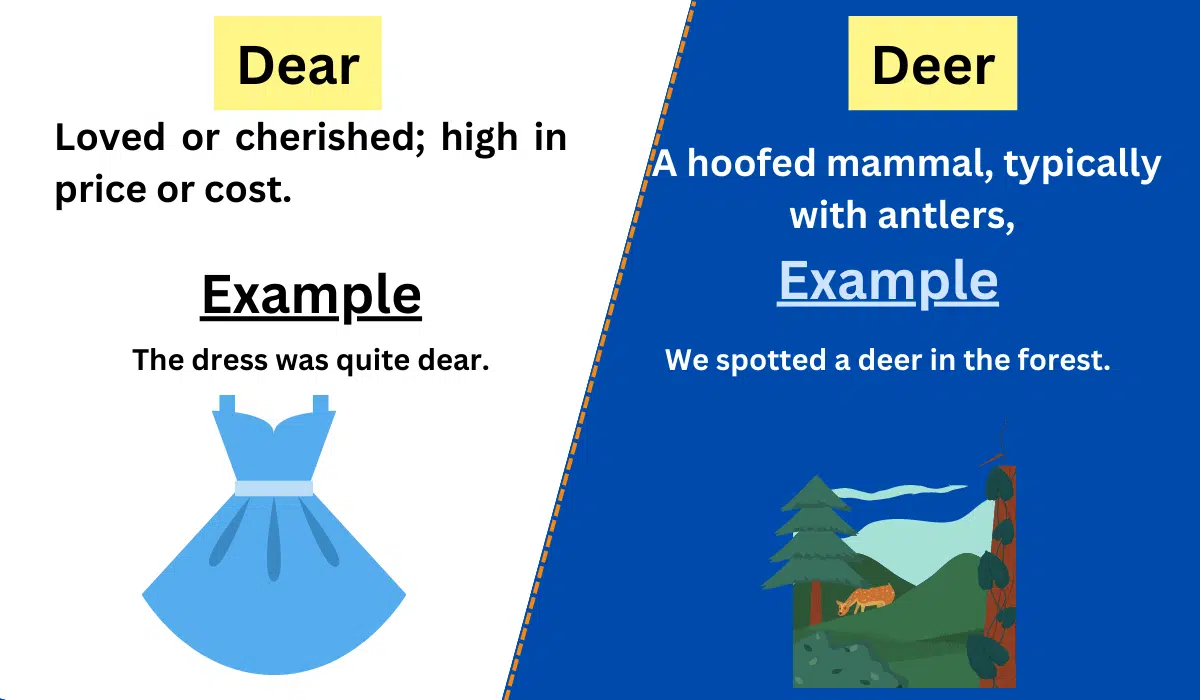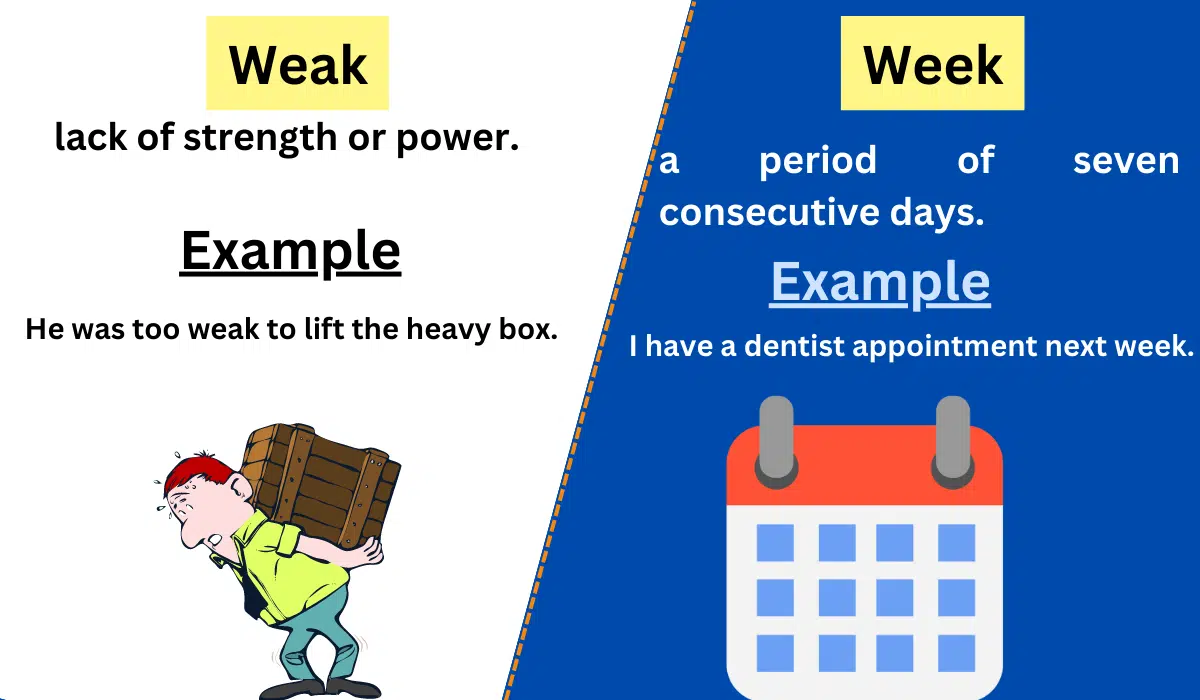Complacent vs Complaisant-Difference Between and Examples
In the English language, words with similar spellings or pronunciations may have different meanings, causing confusion in their usage. “Complacent” and “complaisant” are two such terms that, despite their resemblance, convey distinct ideas.
In this article, we will explore the differences between “complacent” and “complaisant” to gain a deeper understanding of their definitions and usage. By differentiating between “complacent” as self-satisfaction and “complaisant” as agreeable or accommodating, we can use these words correctly in various contexts. Let’s delve into the contrasts between “complacent” and “complaisant.”

Meanings and Examples
Complacent Meaning
Adjective: The meaning of Complacent refers to a state of self-satisfaction or contentment, often accompanied by a lack of motivation for improvement.
Complacent Examples
- The team’s complacent attitude resulted in a decline in their performance.
- He became complacent after receiving positive feedback and stopped striving for excellence.
- The complacent student neglected to study for the exam, assuming success without effort.
- The company’s complacent approach to customer service led to a decline in customer satisfaction.
- She grew complacent in her job, overlooking opportunities for professional growth.
Complaisant Meaning
Adjective: The meaning of Complaisant refers to being agreeable, accommodating, or willing to please others.
Complaisant Examples
- The host was exceptionally complaisant, ensuring that all guests’ needs were met.
- He displayed a complaisant attitude, readily assisting his colleagues with their projects.
- The complaisant employee always agreed to take on additional tasks to support the team.
- The restaurant staff provided complaisant service, catering to each customer’s preferences.
- Her complaisant nature made her a sought-after team player in group projects.
Differences Between Complacent and Complaisant
| Criteria | Complacent | Complaisant |
| Meaning | Self-satisfaction, contentment | Agreeable, accommodating |
| Part of Speech | Adjective | Adjective |
| Pronunciation | kəmˈpleɪsnt | kəmˈpleɪznt |
| Usage | Describing self-satisfaction or contentment | Describing agreeable or accommodating behavior |
Usage in a Paragraph
The manager’s complacent attitude towards the declining sales figures hindered the team’s progress. Despite customer complaints and market challenges, the manager remained complacent, ignoring the need for change and improvement. In contrast, the sales representative adopted a complaisant approach, actively seeking feedback from customers and making necessary adjustments to meet their demands. By being complaisant and responsive to customer preferences, the sales representative successfully built strong relationships and increased sales.
By understanding the distinctions between “complacent” and “complaisant,” we can accurately use these words in their respective contexts. “Complacent” describes a state of self-satisfaction or contentment, often accompanied by a lack of motivation for improvement. In contrast, “complaisant” refers to being agreeable, accommodating, or willing to please others. Recognizing the difference between these terms allows us to convey our thoughts effectively, ensuring clear and precise communication. With this knowledge, we can navigate conversations, writings, and interactions, maintaining awareness of our own tendencies toward complacency and embracing a complaisant approach when appropriate.







Leave a Reply